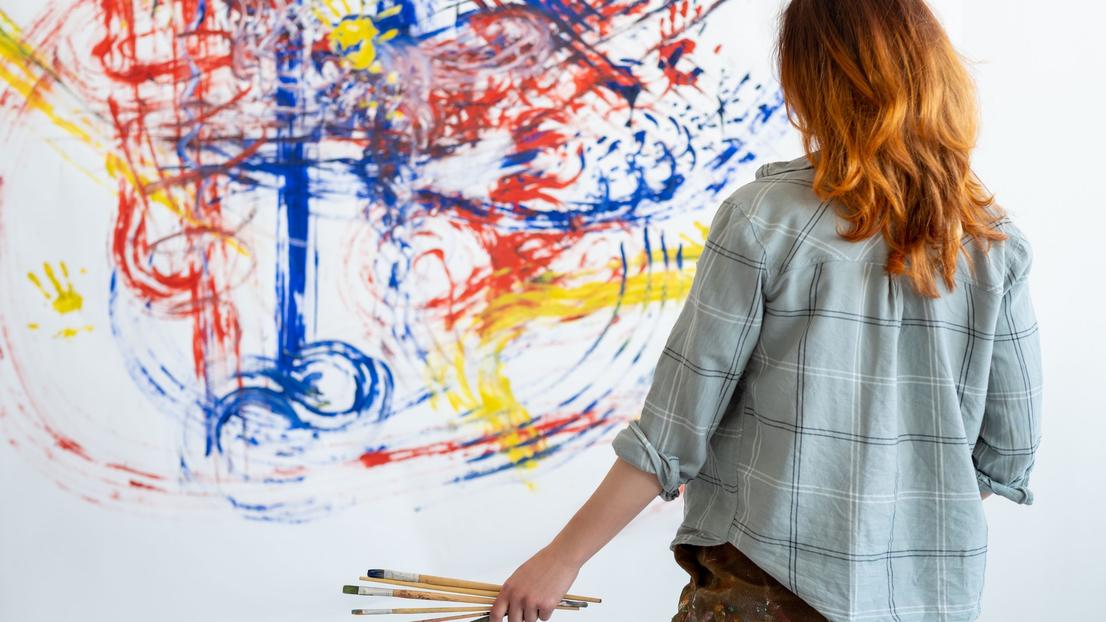Healing Through Art & Creativity: Expressive Therapies for Trauma Recovery

Every individual responds to trauma in a unique way. Some find solace in writing, others in talking, and some are even left speechless. Yet, there is an increasingly popular form of therapy that is unlocking the healing potential in countless individuals: expressive arts therapy.
This approach taps into the boundless realm of creativity, offering a safe platform for those impacted by trauma to express their feelings and begin their journey to recovery.
What is Expressive Arts Therapy?
Expressive arts therapy, as its name implies, employs various forms of creative expression such as painting, sculpting, dancing, writing and music, among others. This approach is used to help individuals navigate through emotional, psychological, and physical difficulties.
The theory behind expressive arts therapy posits that engaging in creative activities stimulates the brain and can trigger a plethora of emotions. It also helps individuals develop a new language, a non-verbal one, through which they can communicate experiences that are often too difficult to put into words.
Art & Creativity: Tools for Trauma Recovery
In the context of trauma recovery, expressive arts therapy offers a unique set of benefits. For many, it’s difficult to articulate the complexities of trauma through conversation. Creative mediums, however, provide alternative avenues for expression. By allowing individuals to physically manifest their emotions, expressive arts therapy can help to facilitate exploration, understanding, and eventual healing.
Art and creativity also foster mindfulness – they immerse individuals in the present moment, allowing them to focus solely on their creative process. This mindful immersion can act as a powerful antidote to traumatic memories, which often transport individuals back to painful past experiences.
Applying Expressive Arts Therapy
Working with a trained professional is paramount to the success of expressive arts therapy in trauma recovery. A trauma counsellor Melbourne, for example, can guide individuals through their creative journey, helping them tap into their inner resources and develop a deeper understanding of their emotions.
During a session, the counsellor may present a variety of creative mediums and encourage the individual to choose the one they feel most comfortable with. The therapeutic process is not about producing aesthetically pleasing artwork; rather, it’s about the healing power of creative expression.
Over time, through consistent engagement with their chosen medium, individuals can begin to unpack their traumatic experiences. The artwork, music, dance, or written piece they produce serve as physical embodiments of their experiences and emotions. This allows for introspection, dialogue, and ultimately, healing.
The Therapeutic Impact
The impact of expressive arts therapy on trauma recovery can be profound. Art and creativity are inherently therapeutic – they bring relief, provide a sense of control, and promote self-understanding. Through expressive arts therapy, individuals can navigate their trauma in a safe and supportive environment, gradually moving towards recovery.
Additionally, art and creativity help to boost self-esteem. Producing a tangible piece of artwork, a poem, or a dance routine allows individuals to acknowledge their abilities and value their unique expressions.
Of course, expressive arts therapy is not a cure-all. When used in conjunction with traditional therapeutic techniques though, it can significantly enhance the healing process. For those struggling to verbalise their experiences or feelings, it offers a much-needed voice.
Would Expressive Arts Therapy Benefit You?
Expressive arts therapy has gained recognition as an effective form of therapy, particularly in the realm of trauma recovery. By leveraging the power of art and creativity, individuals are afforded a unique opportunity to express, explore, and heal.
Whether it’s through the support of a trauma counsellor or elsewhere, the journey to recovery can be enhanced by incorporating these creative techniques. Expressive arts therapy truly embodies the saying “art is the language of the soul” and utilises it for the noblest possible motivations.







